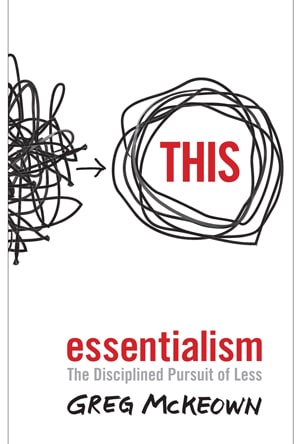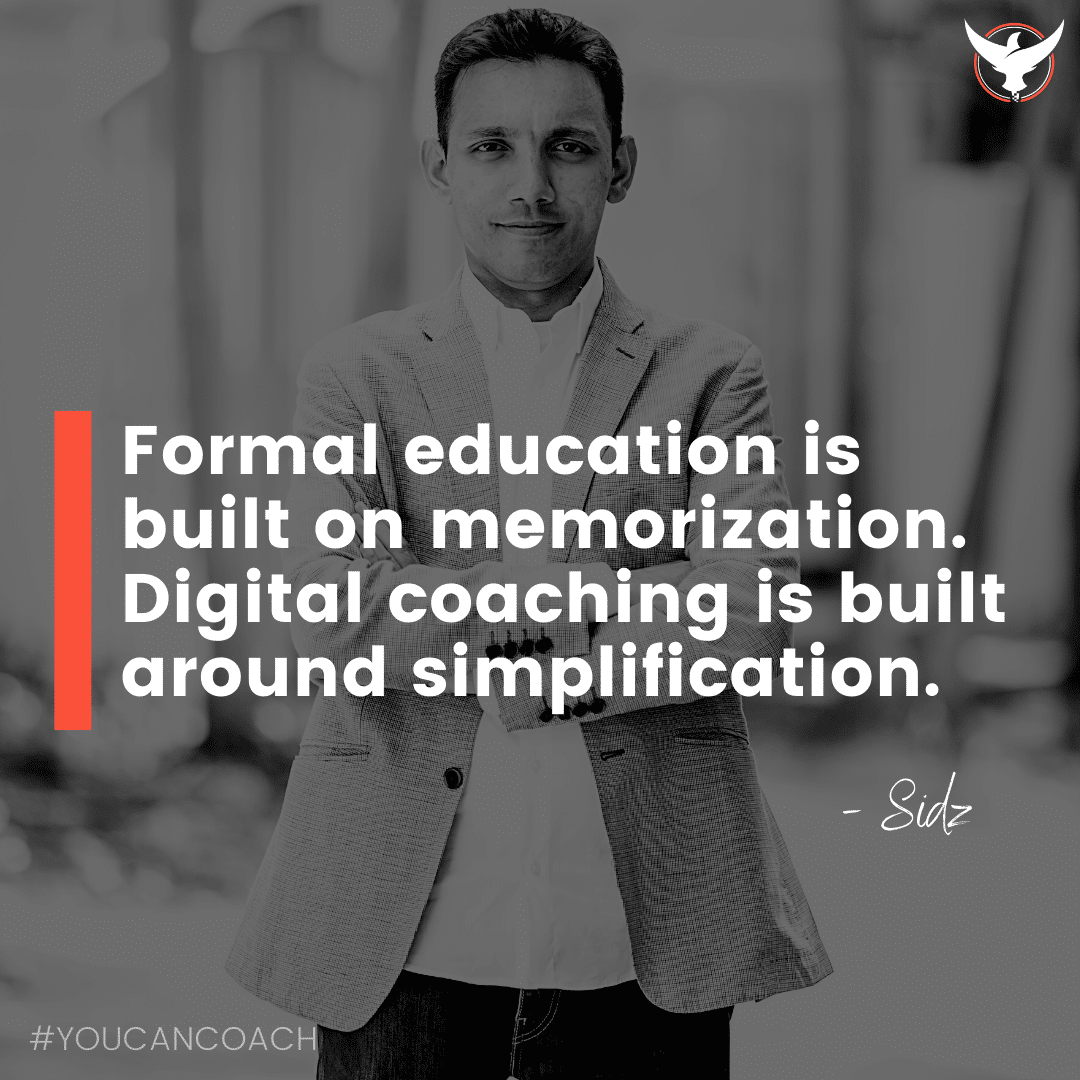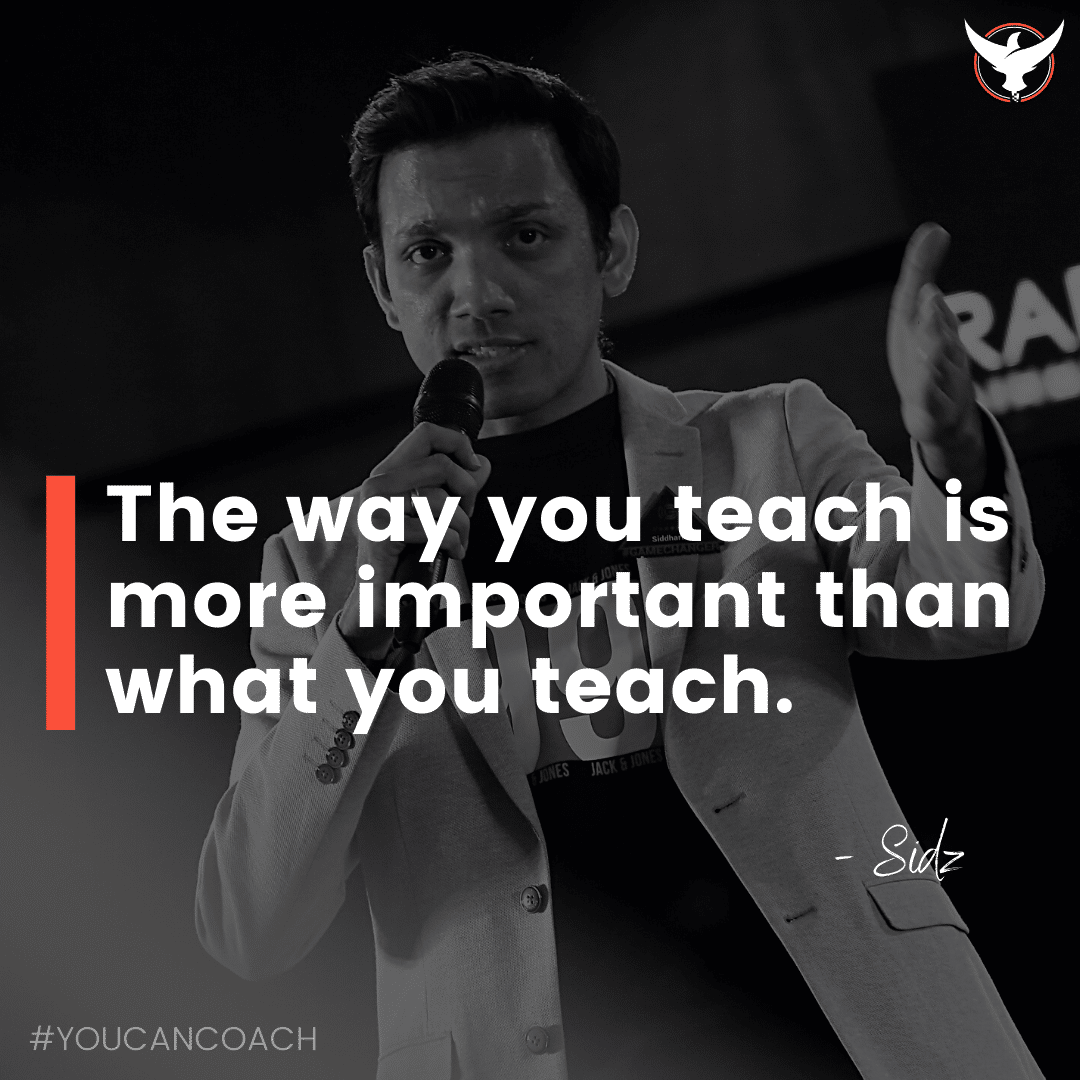The Ultimate Guide to Coach
Teachers
About The Author
Siddharth Rajsekar
Founder - Internet Lifestyle Hub
Siddharth Rajsekar aka Sidz is the founder of the Internet Lifestyle Hub, one of the world’s largest communities for coaches, trainers, teachers, and experts with over 20,000 members.
As an acclaimed lifestyle entrepreneur, Business World's 40 under 40 award winner, and international speaker, Siddharth has trained over 500,000 people in the last 10 years. Recognized as one of India’s leading and sought-after “info-marketing” specialists, Siddharth has worked closely with renowned International experts like Robert Kiyosaki, T Harv Eker, Tony Robbins, Brian Tracy, and Jack Canfield.
After running many multi-million-dollar online campaigns for companies and helping people make money online in the last 10 years, Siddharth has developed and perfected the Freedom Business Model. The Freedom Business Model focuses on helping people take their expertise online and building a super-profitable digital coaching business, without an office or employees.

His mission is to reform the education and employment system by building a new breed of Digital Leaders, based on the core principles of humanity and simplicity and by enhancing one’s social skills, happiness, and overall productivity.
He is the author of this book, “You Can Coach” which decodes all the steps for experts to successfully PLAN, LAUNCH, and GROW a digital coaching business to six figures a month. Wearing multiple hats, Siddharth is a husband of a loving wife, a father of 2 boys, a minimalist, futurist, spiritualist, a YouTuber who has published over 300 videos, as well as a podcast host!
1. Are You Cut Out To Be Teachers A Coach?
The world is changing so rapidly that the formal education system cannot keep up. This is why we see millions of students with education loans and thousands of professionals who are unhappy in unfulfilling careers. Our current education and employment system has so many cracks because it was created in the 1900s - the industrial era.
The only goal of the education system back then was to create factory workers and make them employable. That outdated system, with its blind belief in authority, does not allow anyone to think for themselves because it has its roots in the industrial era. We simply cannot afford to punish our kids by setting them on this path of outdated paradigms. Lag is the difference in time between an idea and its implementation. The longest lag industry that we know of is education; 50 years.
Unfortunately, by the time new concepts are tested, approved, and integrated into the mainstream education system, things will have changed again. There is no way that our current education system can ever catch up. Outdated policies, slow decision-making, a lack of progressive thinking, a lack of adaptation, and a hunger for power and control are some attributes of the current education and employment systems.
The formal education system is built on the foundation of memorization. You need to learn many things to finally use extremely little. Which is easier, memorizing the entire map of your city on Google Maps or just getting directions from your home to your destination? Yet, that’s exactly how the formal education system works. Students are asked to mindlessly memorize without understanding the real-world application.
There are thousands of people living hollow and misaligned lives because they just “conformed to society’s norms” and the peer pressure of the education system.
The other alternative at this point is homeschooling. The world of tomorrow has unlimited possibilities, and homeschooling is one of the most effective ways to get the best out of your child, provided you know what you’re doing and have a good structure in place to enable that.
There will definitely be many challenges you may face in taking that bold step to rebel against the system, but the pay-off is much greater than life if done well.
The most common reactions against homeschooling
How will he/she get a job when they grow up?
Are you planning to follow any curriculum or syllabus?
Why are you ruining your child’s future?
The fact remains that the ones who are able to be more creative, expressive, and quick to learn, un-learn and re-learn are the ones who will be happy and successful in their lives.
A video by Sir Ken Robinson talks about the realities of today’s broken education system.
The most common advice we get from our elders is to go to school, get good grades, get a safe and secure job, and stay happy. Life is much more than that. Unfortunately, the entire education system today is just a slave to the system.
We are now living in a different world. We cannot continue with this pattern unless there are some fundamental changes to the system and the only way we can fix this problem is to build a new breed of teachers, coaches, and mentors who are implementers.
Teachers outside the school system bring specialized knowledge, individualized instruction, supplemental learning opportunities, flexibility, lifelong learning support, and community engagement. They play an essential role in expanding educational opportunities and meeting the diverse needs of learners outside of the formal school system.
Home educators can play a crucial role in education:
1. Individualized Instruction:
Some students may require personalized attention and instruction that cannot be fully addressed in a traditional classroom setting. Private tutors or home educators can tailor their teaching methods to the unique needs and learning styles of individual students, providing one-on-one guidance and support.
2. Flexible Learning Environment:
Not all students thrive in a conventional school setting. Some may prefer or benefit from alternative learning environments that provide more flexibility, such as online education platforms, homeschooling, or specialized academies. Teachers outside the school system can adapt to these settings, allowing students to learn at their own pace and in a manner that suits their individual needs.
3. Specialized Knowledge:
Teachers outside the school system often possess specialized knowledge in specific areas. They can provide in-depth instruction and expertise that may not be covered comprehensively within the regular school curriculum. For example, music teachers, art instructors, or sports coaches can offer focused training and mentorship in their respective fields.
4. Lifelong Learning:
Education is not limited to childhood or formal schooling. Teachers outside the school system contribute to lifelong learning by offering adult education programs, vocational training, or professional development courses. They help individuals acquire new skills, enhance their knowledge, and adapt to evolving career demands.
5. Community Engagement:
Teachers outside the school system can foster community engagement and outreach. They can organize workshops, seminars, or community-based programs to educate and empower people beyond the traditional school environment. This extends education to various demographics and promotes lifelong learning within communities.
The qualities of teachers outside the school system can vary depending on the specific context and requirements of their roles. However, some general qualities that are important for these teachers include:
1. Expertise:
Teachers outside the school system should have a strong command of the subject or field they are teaching. They should possess the necessary knowledge, skills, and experience to effectively guide and instruct students in their areas of expertise.
2. Communication Skills:
Effective communication is crucial for teachers to convey information, explain concepts, and engage students in meaningful discussions. Teachers should be able to articulate ideas clearly, listen attentively, and adapt their communication style to the needs and understanding of their students.
3. Flexibility and Adaptability:
Teachers outside the school system often work in non-traditional or diverse learning environments. They should be adaptable and flexible in their teaching methods, able to adjust their approach to meet the unique needs and learning styles of individual students.
4. Patience and Empathy:
Teaching can be a challenging task, and teachers outside the school system often work with students who may require additional support or face specific challenges. Patience and empathy are essential qualities that allow teachers to understand and address the individual needs, struggles, and strengths of their students.
5. Creativity:
Teachers outside the school system may need to develop innovative teaching strategies and materials to engage students effectively. Creativity allows them to think outside the box, design engaging lessons, and tailor their instruction to the specific learning goals and interests of their students.
6. Organization and Time Management:
Being organized and proficient in time management is crucial for teachers outside the school system. They often work independently or in various settings, and it's important for them to plan and allocate their time effectively, manage resources, and ensure smooth and productive learning experiences.
7. Continuous Learning:
Teachers should be committed to their own ongoing professional development and stay up to date with the latest developments and research in their field. They should be open to learning new teaching methods, incorporating technology, and expanding their knowledge to provide the best possible education for their students.
8. Passion for Teaching and Learning:
Above all, teachers outside the school system should have a genuine passion for teaching and a deep commitment to their students' growth and success. They should inspire curiosity, foster a love for learning, and motivate students to reach their full potential.
It's important to note that these qualities can vary depending on the specific role and context in which teachers outside the school system operate. Different teaching positions may require additional or specialized qualities.
Even experienced teachers outside the school system can benefit from having coaches or mentors to support their professional development. Overall, coaches support teachers outside the school system by providing personalized guidance, skill enhancement, reflective practice, emotional support, and access to professional networks. They play a crucial role in helping teachers grow, develop, and continuously improve their teaching practices.
Here are some reasons why teachers in these roles may benefit from coaching:
Skill Enhancement:
Coaches can help teachers refine their teaching skills and techniques. They provide feedback, guidance, and suggestions for improvement, helping teachers enhance their instructional strategies, classroom management, and overall effectiveness in their roles.
Reflective Practice:
Coaches encourage teachers to engage in reflective practice, helping them critically analyze their teaching methods, classroom dynamics, and student interactions. By reflecting on their experiences and receiving feedback from coaches, teachers can identify areas of strength and areas that require further growth and development.
Goal Setting and Accountability:
Coaches assist teachers in setting goals and objectives for their professional development. They support teachers in creating action plans and provide accountability to ensure progress and growth. Coaches help teachers stay focused, motivated, and on track toward achieving their goals.
Emotional Support:
Teaching can be a demanding and sometimes isolating profession. Coaches offer emotional support, providing a safe space for teachers to express their concerns, discuss challenges, and celebrate successes. Coaches can serve as a sounding board, offering empathy, encouragement, and guidance to help teachers navigate the ups and downs of their work.
Keeping Up with Best Practices:
Coaches stay informed about current trends, research, and best practices in education. They can share relevant resources, introduce new ideas, and help teachers stay up to date with the latest pedagogical approaches and strategies. Coaches can bridge the gap between theory and practice, offering insights and suggestions for implementing effective teaching methods.
Personalized Guidance:
Coaches provide personalized guidance tailored to the specific needs and context of individual teachers. They can address unique challenges or concerns that arise in non-traditional teaching environments, such as homeschooling, online education, or specialized programs. Coaches offer individualized support that takes into account the specific circumstances and goals of each teacher.
Professional Networking:
Coaches often have extensive networks within the education field. They can connect teachers with other professionals, resources, and opportunities for collaboration. Coaches facilitate networking and community-building, fostering a sense of belonging and providing access to a broader educational community.
2. Creating A Curriculum
Today, we’re living in a world where people can Google whatever they wish, and they get thousands of options. People do not lack information. They can spend hours and hours researching on YouTube without finding a solution to their problem.
What people want is a clear-cut path to achieving their goals, and they want it fast. What people will pay you for is not the volume of information, but how simple you can make it for them. How fast can you get them a result?
As a coach, your mission is to help clients achieve their goals by providing them with valuable insights and guidance. To achieve this, it is important to have a well-structured curriculum that covers all the key aspects of the coaching process. As a coach, your mission is to help clients achieve their goals by providing them with valuable insights and guidance. To achieve this, it is important to have a well-structured curriculum that covers all the key aspects of the coaching process.
Creating a curriculum can be a complex and time-consuming task, but it is an essential step for ensuring the success of your coaching business. A well-designed curriculum will help you achieve your coaching goals and provide a structured framework for your coaching sessions.
People don’t buy products or courses. They buy a better version of themselves. When you design a curriculum that shows them a mirror and then the path, they will be in a better position to decide whether to buy your course. Simplifying this journey with a dash of fun is the recipe for success.
Define Your Coaching Goals:
Before you start creating your curriculum, it is important to define your coaching goals. This will help you determine the content and structure of your curriculum. For example, if your goal is to help your clients achieve their personal or professional goals, you might want to include a section on goal-setting and action planning.
Determine Your Target Audience:
Understanding your target audience is critical for developing an effective curriculum. Knowing who your clients are and what their needs are will help you tailor your curriculum to meet their specific requirements. For example, if you are coaching business executives, you may want to include a section on leadership development.
Consider Relevant Topics:
Consider the topics that are most relevant to your clients and your coaching goals. If you are coaching clients who are looking to improve their communication skills, you might want to include a section on active listening, assertiveness, and non-verbal communication.
Create a Structured Framework:
A structured framework will help you organize your curriculum and make it easier for your clients to understand. This framework can be as simple or complex as you need it to be, but it should include a clear introduction, several sections, and a conclusion. Before deciding to take action and achieve results, your clients must first develop the proper mindset, and to do so, the roadblocks that are holding them back must be removed. This is a list of books that you should recommend to your clients.
Creating an effective curriculum for your teachers' coaching business takes time and effort, but it is well worth it in the end. By following these steps, you will be able to create a structured and effective curriculum that will help you achieve your coaching goals and provide value to your clients.
Creating a curriculum can be a complex and time-consuming task, but it is an essential step for ensuring the success of your coaching business. A well-designed curriculum will help you achieve your coaching goals and provide a structured framework for your coaching sessions.
12 “MUST READ” Books

1. Thou Shall Prosper
Ten Commandments for Making Money-by Daniel Lapin. Principles on which Jewish people build wealth while debunking the myths about their reputation. The true principles of wealth creation show that creating true wealth is a spiritual activity if you do it with the right mindset and perspective.

2. Becoming Supernatural
How Common People Are Doing the Uncommon-by Joe Dispenza. Tracking brain frequency and how you can change your life through spirituality. Understanding the link between spirituality and science
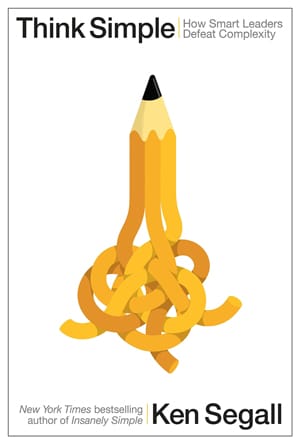
3. Think Simple
How Smart Leaders Defeat Complexity-by Ken Segall. How Steve Jobs used product design, simplicity, consumer experience.

4. The 80/20 Principle by Richard Koch
Pareto's principle is evaluated as per the 80/20 rule. How 20% of your efforts can reap 80% of your results.
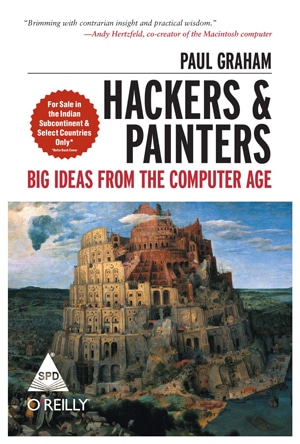
5. Hackers and Painters by Paul Graham
Abstract thinking and coding to do things beyond boundaries. By thinking outside the box, you can bend and break the rules.
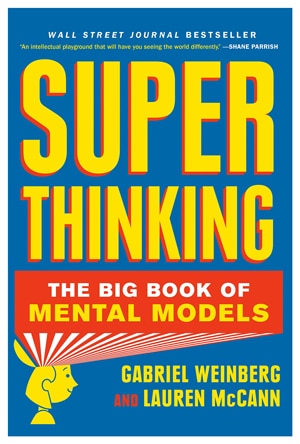
6. Super Thinking
Upgrade Your Reasoning and Make Better Decisions with Mental Models -by Gabriel Weinberg. mental models to think out of the box and better decisions

7. The Membership Economy
Find Your Super Users, Master the Forever Transaction, and Build Recurring Revenue eBook-by Baxter, Robbie Kellman.
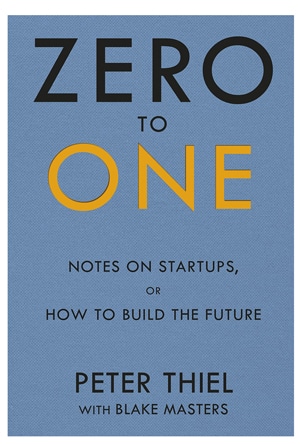
8. Zero to One
Notes on Start-Ups, or How to Build the Future -by Peter Thiel. How to dominate your market with amazing ideas. How to build reachability, and achieve phenomenal growth over the long term to reach out to a large number of people.
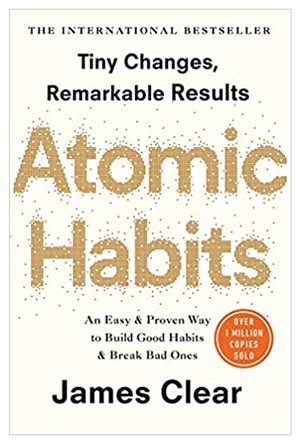
9. Atomic Habits
An Easy and Proven Way to Build Good Habits and Break Bad Ones -by James Clear. Focus and discipline make all the difference

10. Influence, New and Expanded
The Psychology of Persuasion, -by Robert B. Cialdini. Sales, and psychology of conversion. Persuasion, sales, and buying triggers.

11. Lead the Field by Earl Nightingale
Your market/niche/space and how to position yourself. Leadership and building community for revolutions and movements
